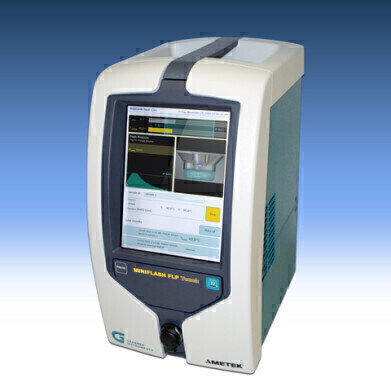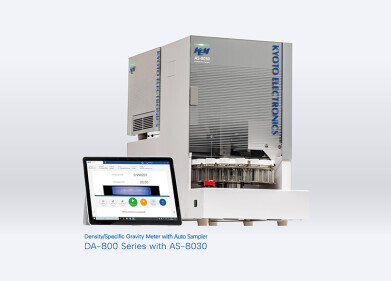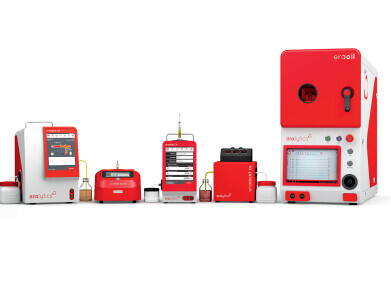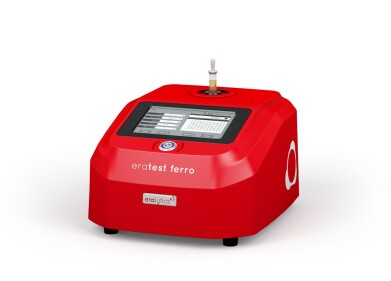Analytical Instrumentation
Flashpoint Method Accepted for ASTM Diesel Fuel Specifications
Feb 13 2014
In December 2013, ASTM cleared the way for the new age in flashpoint testing. ASTM members voted to accept D7094 as a new method for testing diesel, fuel oils and kerosene according to the ASTM specifications D975, D396, D2880 and D3699. The positive impact of the new method on costs, safety and on resolving environmental issues will be impressive.
A quick look at the new method reveals some obvious benefits. D7094 requires only 2 mL of sample. This is a big advantage for laboratory safety and minimises the amount of hazardous waste. Thermoelectric heating and cooling of a small sample and easy cleaning contribute to an increase in testing throughput and a reduction of laboratory time. The small sample size also reduces costs, especially when expensive samples are tested.
With the D7094 method, tests are performed through electric discharge in a completely closed cup. No open flame is generated, because the flash point is detected by the pressure increase inside a closed system. The risk of fire and obstructive fumes are eliminated. D7094 testers are small and portable, making them suitable for use in laboratory or directly in the field.
The ASTM decision to include D7094 into diesel fuel specifications was based on the results of the cooperative test program RR:D02-1581. In this inter-laboratory study, the flashpoint of contaminated jet fuels, diesels and lubricating oils was tested with the Grabner Instruments (Austria) D7094 MINIFLASH testers and D93 Pensky Martens testers.
Contaminated samples were chosen to reflect real world conditions in refineries, terminals and pipelines, because even small amounts of contaminants can have a big impact on the flashpoint of a sample. Results showed equivalency of the methods and even better precision of the new D7094 method.
Oliver Sauer, Head of Marketing & Sales at Grabner Instruments, describes the atmosphere at the December ASTM meeting, immediately before the ASTM committee voted in favor of the new method: “We were impressed by the way ASTM members and our customers were literally pushing our D7094 standard into the specifications. It seemed that this decision was overdue. Many customers already are committed to using a more precise, faster, safer and more economic method in flashpoint testing.”
According to Mr. Sauer, the ASTM decision also may act as tailwind for a move to include D7094 in EN and ISO diesel specifications. “With our flash point method available on the market for several years, our user community is convinced that it is a good and precise method. As the trend to toward global harmonization of chemical regulation continues, along with the results from the ASTM and the industry, we expect the ISO committee will consider adding this method to its own set of specifications. We are ready to provide whatever additional proof of performance is required.”
Digital Edition
PIN 25.2 Apr/May
April 2024
In this Edition Safety - Carbon monoxide toxic and flammable gas detection Analytical Instrumentation - Density: A fundamental parameter at critical stages within the petroleum sector...
View all digital editions
Events
May 05 2024 Seville, Spain
May 06 2024 Riyadh, Saudi Arabia
May 06 2024 Houston, Tx, USA
May 06 2024 Houston, Tx, USA
Canada Gas & LNG Exhibition & Conference
May 07 2024 Vancouver, BC, Canada


















